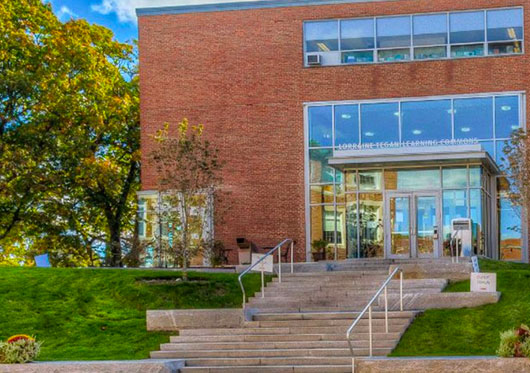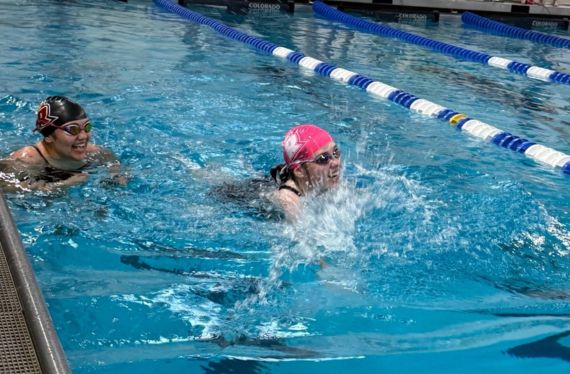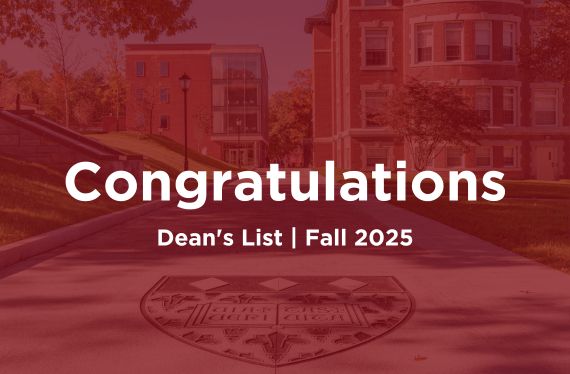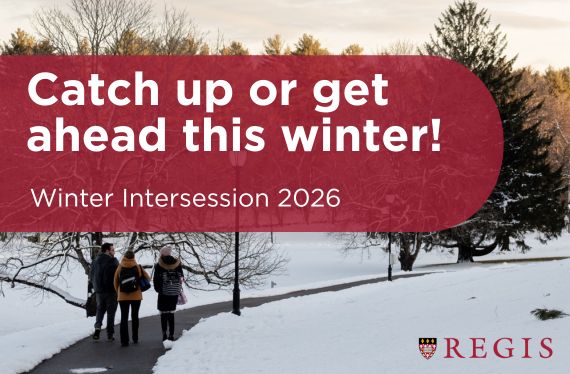 After a successful and lucrative career of more than 25 years in quality assurance, customer relations and client training in the software industry, Betsy Johnson was ready for a change. She always had an interest in puppetry and poetry but didn’t see either as sustainable. “I very much looked up to my dad growing up, who was a clinical psychologist, so I envisioned myself in that role,” she recalls. His work at a residential school exposed her to children with cognitive and developmental disabilities where, she says, “I developed a love for this population.” The real inspiration for her career change, however, came from another family member. Johnson’s autistic daughter, then in 11th grade, was having trouble taking notes in class and listening at the same time. The family asked to record the lectures but the school system declined. While advocating for her daughter, Johnson decided “It was time to finally pursue something that would be more fulfilling.”
After a successful and lucrative career of more than 25 years in quality assurance, customer relations and client training in the software industry, Betsy Johnson was ready for a change. She always had an interest in puppetry and poetry but didn’t see either as sustainable. “I very much looked up to my dad growing up, who was a clinical psychologist, so I envisioned myself in that role,” she recalls. His work at a residential school exposed her to children with cognitive and developmental disabilities where, she says, “I developed a love for this population.” The real inspiration for her career change, however, came from another family member. Johnson’s autistic daughter, then in 11th grade, was having trouble taking notes in class and listening at the same time. The family asked to record the lectures but the school system declined. While advocating for her daughter, Johnson decided “It was time to finally pursue something that would be more fulfilling.”
That something was the result of a simple search. “I didn’t even know what I was Googling,” Johnson laughs. “I was just sort of looking at programs to help kids in college with autism and I somehow came up with ‘student success’ and when I read those words, I thought, ‘That’s exactly it!’ When I learned about the Master of Education for Student Success program, it seemed to be a perfect marriage of my love for the neuro-diverse community and my desire to work in the higher education space.”
Johnson is referring to a unique Regis College graduate program that began in 2019 and will graduate its first class in August. Designed for both career professionals in education and those seeking to make a transition to the field, Student Success, an online MEd program, is ideally suited to individuals pursuing jobs like school counselors and coach/mentor/tutor academic support roles in higher education, many of which tend to be growth fields. Job postings related to student academic success, for example, increased by 86% from 2013 to 2018 – by far the fastest increase of any sector in education. The program is also appropriate for lead teachers and classroom teachers in the PK-12 sector who want to gain knowledge on student support skills through earning a master’s degree.
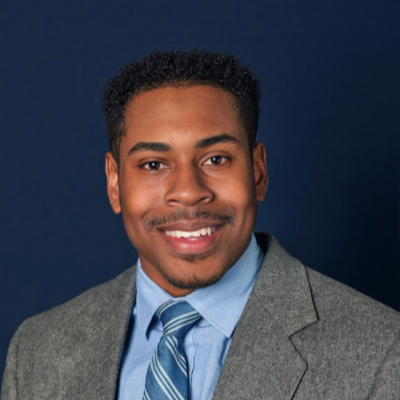 Where Johnson is making a transition to education, Moddie Linen MEd ’21 was already steeped in the field. “There were two points in my life when I knew I wanted to pursue a career in higher education,” he recalls of his undergraduate experience at Western Connecticut State University. “As a Resident Assistant, I had the opportunity to create engaging programs tailored to the needs of residents…When I worked for the Vice President and Dean of Students Office as a Student Office Assistant, I saw firsthand the impact student affairs professionals could have on campus culture and the overall student experience. For that reason, I wanted to be in a position that supports an institution’s efforts to retain, engage and guide students to academic success.”
Where Johnson is making a transition to education, Moddie Linen MEd ’21 was already steeped in the field. “There were two points in my life when I knew I wanted to pursue a career in higher education,” he recalls of his undergraduate experience at Western Connecticut State University. “As a Resident Assistant, I had the opportunity to create engaging programs tailored to the needs of residents…When I worked for the Vice President and Dean of Students Office as a Student Office Assistant, I saw firsthand the impact student affairs professionals could have on campus culture and the overall student experience. For that reason, I wanted to be in a position that supports an institution’s efforts to retain, engage and guide students to academic success.”
Linen was in a master’s program at Central Connecticut State University when he decided to apply for higher education opportunities. After an extensive search and interview process, he received offers in three New England states including Massachusetts where Regis was looking for a Graduate Residence Director. “[They] invited me to the campus and I was sold!” he continues. “The conversations with Regis staff were student-centered and mission-driven.” In his MEd program, Linen hopes “to explore solutions to address equity and inclusion on college campuses.” So far, he has found, the program has been “highly beneficial in giving me perspective on high-impact practices, supporting diverse student populations and theory-based approaches to student success.”
Applied to educational careers, the term “student success” can have different meanings. Linen initially saw it in terms of “theoretical approaches and best practices that increase student retention, persistence and graduation rates.” Johnson interpreted it as “trying to bridge this gap of where students are—students who have the academic or cognitive capacity to be very successful and there’s something standing in the way, whether it’s disabilities, whether it be poverty, whether it be trauma. Whatever it is, these are kids that with the right support can really shine… This program is trying to provide that bridge to these students.”
The gap which Priscilla A. Boerger, EdD, chair of the Regis department of education was seeking to fill with the Student Success program began with a realization that “When working with students, there is more to consider than academics. This program looks at “the who” and “the how.” For the who, the program focuses on the psychology of learning, neurology of learning and the student brain. For the how, it focuses on skills to support students, learning communities [and] advocating for students and adapting curriculum.”
Although courses are online, students receive networking opportunities through a lecture series and two placements, one of which can be on campus in the Finucane and O’Sullivan Institute for Learning.
As students, both Johnson and Linen have already achieved considerable success of their own. For an assignment to give a presentation on an advocacy organization, Johnson selected Massachusetts Advocates for Children. What began as a class project was received so positively by the organization that they have used her presentation for their own marketing. And Linen, who hopes to one day become a dean of students, is already off to a fast start: even before his May graduation, Linen received a job offer from Boston University where he will be Assistant Director of Judicial Affairs.
That’s the way we spell “success.”
